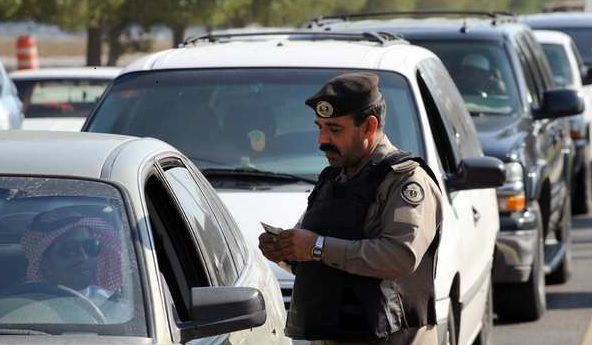“Why are they focusing on protecting the perpetrators of the crimes more than the victims?”
This is how the widow of Briton Michael Hamilton who was killed at the hands of a group of terrorists belonging to Al-Qaeda in 2004 after he was shot 9 times and his body was dragged through the streets of Khobar in a brutal scene responded. Mrs Penelope Hamilton, commenting on the death sentence that her husband’s killers received, said in a previous interview with this newspaper that she was not contacted by Amnesty International since her husband’s death despite it being very easy to do so. The story of Mrs Hamilton is only one of hundreds of sad stories of terrorism’s victims which Saudi Arabia avenged by executing 47 convicted terrorists on Saturday, and this story is considered a real indication of the way the west sees fighting terrorism. Despite the mere thought of dragging the corpse of a human through the streets after killing them being a bloodcurdling thing, this vision looks through a different lens that has no relationship to the facts and realities. While the west is against terrorism and wants to combat it, according to their perception, this must be done according western organisations, laws and rules. In countries where execution is not practiced, execution is considered against human rights, and in countries where execution is practiced like the United States, there is a demand to “respect and protect human rights”.
Of course, no one asks which “human” must be protected. Should the rights of the humans who enjoyed dragging the corpse of Hamilton through the streets of Khobar until the rope with which they tied to one of his legs snapped be protected? Should the rights of those who shot the Irish TV photographer Simon Cumbers in the streets of Riyadh be protected? Should the rights of those who slit the throat of the American Paul Johnson and put his head in the fridge be protected? Should the rights of those who killed French tourists in Mada’in Saleh be protected? In the end, people mix up terrorism, human rights and freedom out of ignorance.
Day after day the distance between the west and the east increases. The west thinks, for the most part, that the only solution for this region is a reproduction of their experience and no other, and that it’s magic recipe to get rid of the problems of the Middle East which is filled with tensions. They believe that just by following the same programme and school that produced that civilisation, the world’s problems will end and the universe will be blessed with safety. They ignore the fact that every country has its own circumstances and that every region has its own norms, and that an experience cannot be reproduced in another area thousands of miles away and is socially and culturally different despite the extent of the experience’s success.
This western theory and understanding of human rights will continue to widen the gap between the east and the west. We are reminded here that the Arab world is generally in urgent need to raise the level of freedom and protect human rights more than it is doing now, but definitely not in accordance with the western experience in all its details, compositions and contexts.
It remains to point out that Nimr Al-Nimr is one of the convicted terrorists who attacked security personnel with weapons, attacked a security patrol with Molotov cocktails and offered protection to terrorists who killed policemen. All of these convictions according to Saudi law lead to execution for the perpetrator. Should Saudi Arabia make use of the French or British law only when Al-Nimr is on trial? Does the United States, for example, accept considering those who participated in terrorist acts on its territory to be described as activists and the opposition?
